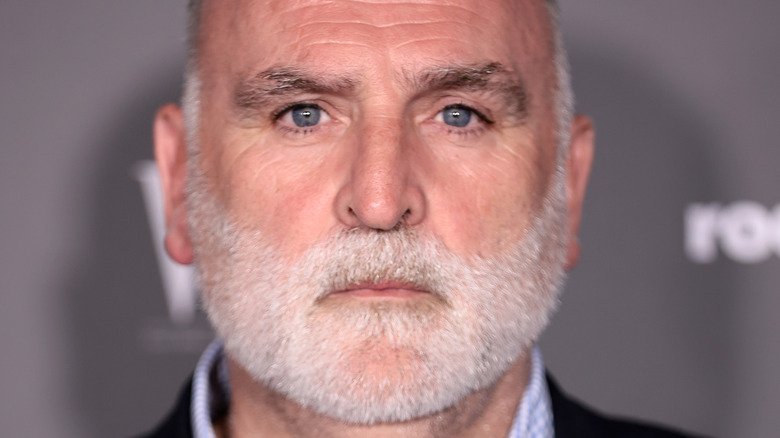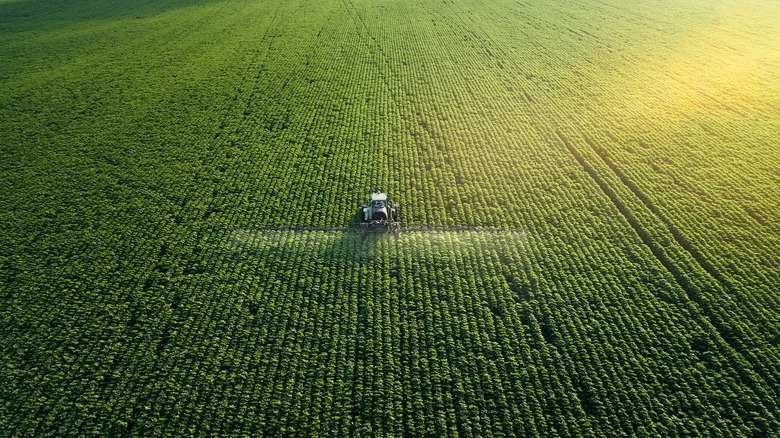José Andrés Is Calling Out A Huge Miscalculation In World Hunger Aid
Chef and humanitarian José Andrés founded World Central Kitchen in 2010 to address "humanitarian, climate, and community crises" by sending professional chefs, volunteers, and fresh food directly to the world's disaster sites. Assisting people affected by climate change-induced events is one of the organization's top priorities, as it's aiming to raise $1 billion this decade to provide food and water, invest in local communities, and affect policy changes that would help vulnerable countries become more self-sufficient in combatting climate disasters.
In addition to providing meals for Ukraine, World Central Kitchen recently sent relief in response to Hurricane Fiona in Puerto Rico, where the team made thousands of meals for those displaced on the territory's islands. However, Andrés has made it clear that his organization aims to not only feed people, but also to "create systems" for long-lasting change. As he told USA Today, "If we don't have systems, we cannot take care of the people." One way the organization does this is through its Food Producer Network, which helps communities "build resilience against future disasters" thanks to grants and loans, local job training, and volunteer assistance at local food producers.
Africa needs investments in 'systems and technology,' not food imports, Andrés says
In other words, Andrés doesn't believe in the Band-Aid effect of sending a country food and then disappearing until the next disaster strikes. Instead, he hopes World Central Kitchen will help countries in need establish long-term food security. He recently reminded his Twitter followers of this goal in response to a post by the Gates Foundation.
On Twitter, the Gates Foundation polled its audience with the question, "How much of the food eaten by people in Africa is produced in Africa?" The majority of the respondents guessed "roughly 20%," which is considerably lower than the correct answer: 80%. Though Africans produce the vast majority of what they eat, $35 billion worth of food is brought into the continent each year. Instead, according to the World Bank Group, "much of this imported food could be produced locally, creating much needed jobs and incomes for nations' youth and smallholder farmers."
The Gates Foundation's post included a call to action for readers to "invest in smallholder farmers to continue this productivity." Andrés agreed, retweeting the post and underscoring his organization's mission by saying, "We need to invest in systems and technology so the African people can not just feed themselves but also to create growth and wealth exporting foods."

